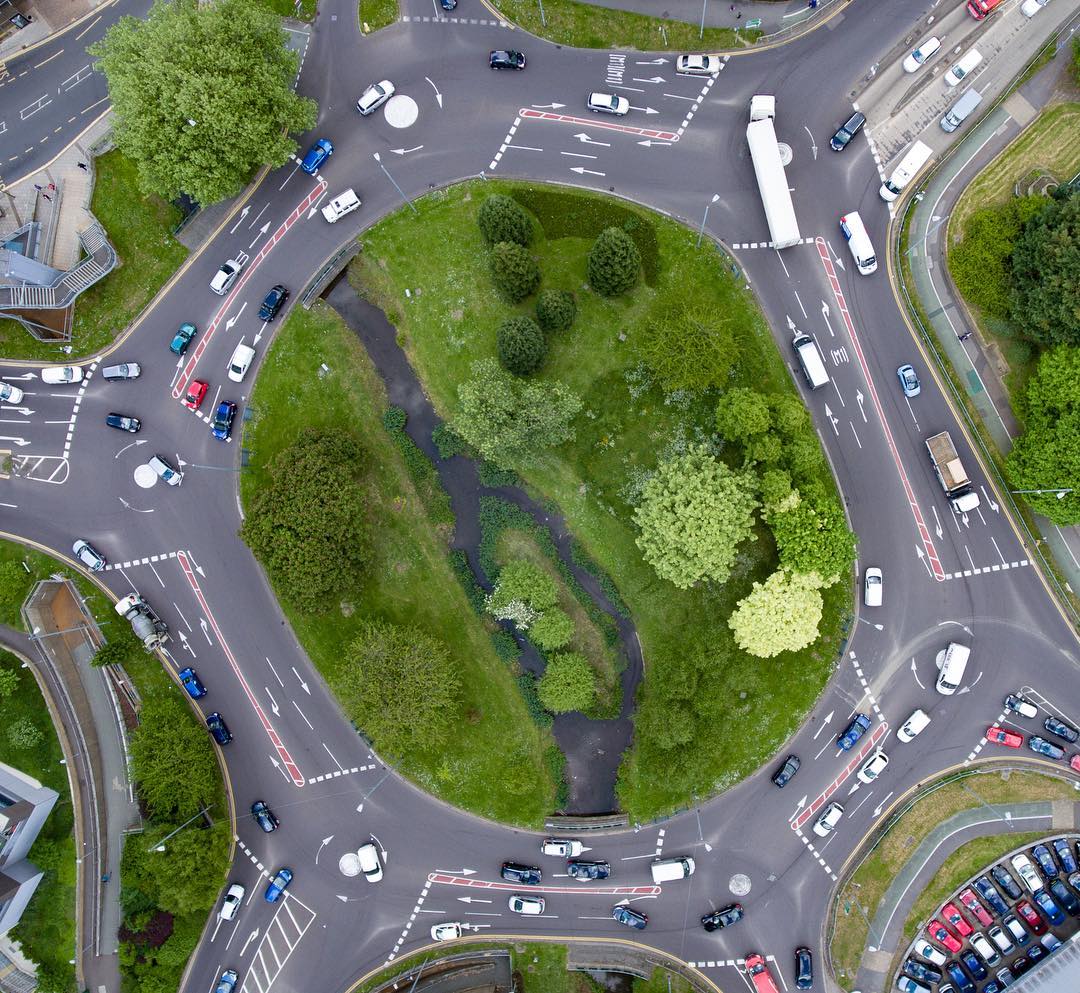On Saturday, February 10th, in Chinatown in San Francisco, a crowd of people attacked and burnt a driverless car operated by Waymo (Google’s self-driving car project). This represents an escalation of activism against autonomous vehicles led by a group calling itself the Safe Street Rebels, who generally seek to disable driverless cars by placing a traffic cone on the bonnet (or hood, for our American readers), which renders the vehicle immobile until a company employee can attend to it. The group’s website expresses a variety of grievances regarding the introduction of autonomous vehicles on public roads, among them being claims regarding increased congestion, safety, surveillance, lack of accessibility and a dearth of legal accountability. Taken together, they amount to a moral case against driverless cars, but each one of the arguments is potentially capable of being addressed by way of advances in technology, the introduction of new legislation or changes in the conduct of the companies that operate driverless cars. There are, however, other arguments to consider – ones that focus less on from the practicalities, dangers and risks of AI controlled vehicles as they currently stand, and more on the value of human capacities and skill.
Traffic, Legislation and Accessibility
The argument that driverless cars (particularly robotaxis) encourage the use of individual vehicles rather than other forms of mobility is salient, particularly in cities that already suffer from congestion and in which there are concerns about air quality (as well as pollution more generally), but this is really an argument about our transport decisions more broadly and is not specific to driverless cars. That is to say, it is an argument against introducing more private transport, rather than specifically autonomous private transport. Similarly, the assertion that autonomous vehicles are exempt from citations for certain motoring offences (a result of the assumption in existing legislation that vehicles have drivers) could easily be addressed via the introduction of laws that treat as drivers either the safety operators present in certain cars or the companies that operate them, who can therefore be held culpable for traffic violations. (Safety operators are already liable to prosecution, as demonstrated by the charges brought against one such driver after a fatal accident in Arizona.) It is contended that self-driving cars are not accessible for those with disabilities. There do indeed seem to be problems with their ability to pull over to the kerb to pick up passengers. Operators are under pressure to rectify this issue (not least because their tendency to stop in traffic lanes creates obstructions) but on the matter of accessibility for those who use wheelchairs, Google suggests that accessible cars can be summoned, with safety operators to assist passengers. Not all driverless vehicles are accessible, but it could be argued that this issue is being addressed.
Surveillance and Sales
Two fundamental concerns are connected with surveillance and safety. With regard to the former, driverless cars do collect various types of data, whether connected with location and the journey itself, or information about passengers. The sensors on the car will also record information about journeys, including objects encountered in the course of travel, such as other cars, humans or animals, such data being necessary for improving safety and avoiding collisions. The use of this data is an area of legitimate concern. If this information is passed to authorities, people can rightly be worried about invasions of privacy and the growth of the surveillance state. Moreover, as Matthew Crawford argues in Why We Drive: On Freedom, Risk and Taking Back Control, citing in this regard the importance of Shoshana Zuboff’s work on surveillance capitalism, it is also quite possible that the technology firms developing driverless cars will be able to use passenger data in order to build a user profile and employ it for the purposes of ‘managing’ more of our activity and selling products and services to users – data being a valuable commodity in contemporary capitalism. This is of course a risk associated with advancing technology but need not be an argument against autonomous vehicles themselves. After all, there are concerns about the extent to which smart TVs and even Alexa devices record information about users. Were technology companies to behave differently, or were there to be rigorous data protection laws in place – laws which were actually enforced with penalties for companies found in breach of them – perhaps the capture, storage and use of data needn’t be of such concern.
Safety
Quite reasonably, safety is the fundamental reason for opposing the introduction of self-driving cars. There have been numerous incidents involving such vehicles. As a result of one fatal accident, Uber ceased testing autonomous vehicles in Arizona, while in the wake of a serious collision, Cruise, a subsidiary of General Motors, had its test licences revoked by the regulator (the DMV) in California on the grounds of ‘unreasonable risk to public safety’. Until such time as deaths and injuries caused by driverless cars can be avoided, it is quite proper to argue that such vehicles should not be on public roads. This is an argument based on the current state of technology rather than driverless cars per se. Without fundamentally redesigning cities and traffic management, there are good reasons to doubt whether self-driving cars will ever be completely safe – or at least no less safe than cars driven by humans – but should the technology ever advance to this point, this argument would no longer serve as a reason to keep autonomous vehicles off public roads.
Driving as a Skill
So far, all arguments, though compelling in their own way, are in a sense ‘time-limited’ and stand to lose their force were suitable changes to occur in legislation, technology or the behaviour of companies. However, an argument advanced by Crawford is rather more stubborn in the face of such changes because it is centred not on the state of technology or regulatory frameworks, but on the nature of driving itself, and human beings as drivers. This argument states that in a world in which driverless cars are the norm, we are rendered (even more) dependent on technology companies, thus impoverishing us as human beings. Much technology – dishwashers, for instance – has the advantage of freeing us from mundane chores to focus on other, more rewarding or fulfilling tasks. Autonomous vehicles are not like this. Driving is not like washing up: it is a skill that requires judgement and the honing of certain capacities, including the ability to negotiate solutions with other road-users to emergent situations through the use of accepted social cues (a feat that it is hard to see autonomous vehicles ever achieving). Driving grants us autonomy and (in some cases) enjoyment but is also a learned ability. Stripping us of this and replacing it with a form of automated transport, controlled by large companies, is to deprive us of something worthwhile and valuable.
Value and Flourishing
It might be replied that driving simply isn’t important: after all we don’t object to not being allowed to drive trains when we catch them. This is true, but it does not address the value of an acquired skill and its place in human flourishing. As we read about the capacity of AI to generate poems, we might wonder whether, at some point, the technology will be able to produce material comparable to that of the greats. Would we equally argue that since software can create poetry that is every bit as impressive as that written by a human, then humans might just as well give up poetry? Surely the answer is that we should not: a skill, an ability or an excellence, provided it is not in some way intrinsically disordered, is of value and is worth preserving. Driving might not be as rarified as great poetry (though Formula 1 aficionados might beg to differ) but this does not make it valueless. Being able to execute a three-point turn might not be an achievement comparable to the work of Thomas Hardy or Virgil, but it is also true that most poetry is not of this kind either. If a computer can produce a poem that is ‘better’ than that of a primary school child, should we simply leave poetry to the software and, once the children have decided on the subject, set them some other task while the computer writes the poem for them? Most would think not – because even if a skill is one in which we are not expertly proficient, or is less impressive than some other activity we might attempt, it can still quite properly be considered worthwhile and a ‘good’.
Conclusion
Were driverless cars to become so advanced that they had almost no environmental impact, were entirely accessible, were never involved in accidents and were subject to laws of the road just like human drivers; were the operating companies to work within a strict social and moral code; and were regulations to prevent the misuse of data always and everywhere enforced, there would still be the question of whether, in dispensing with cars driven by humans, we were in some (perhaps small, but still significant) way, having an adverse effect on human flourishing. This is a moral consideration for us to ponder.
Photograph ©Robin Hamman, downloaded from Flickr using a CC BY-NC 2.0 Deed creative commons licence.
Neil Jordan is Senior Editor at the Centre for Enterprise, Markets and Ethics. For more information about Neil please click here.


